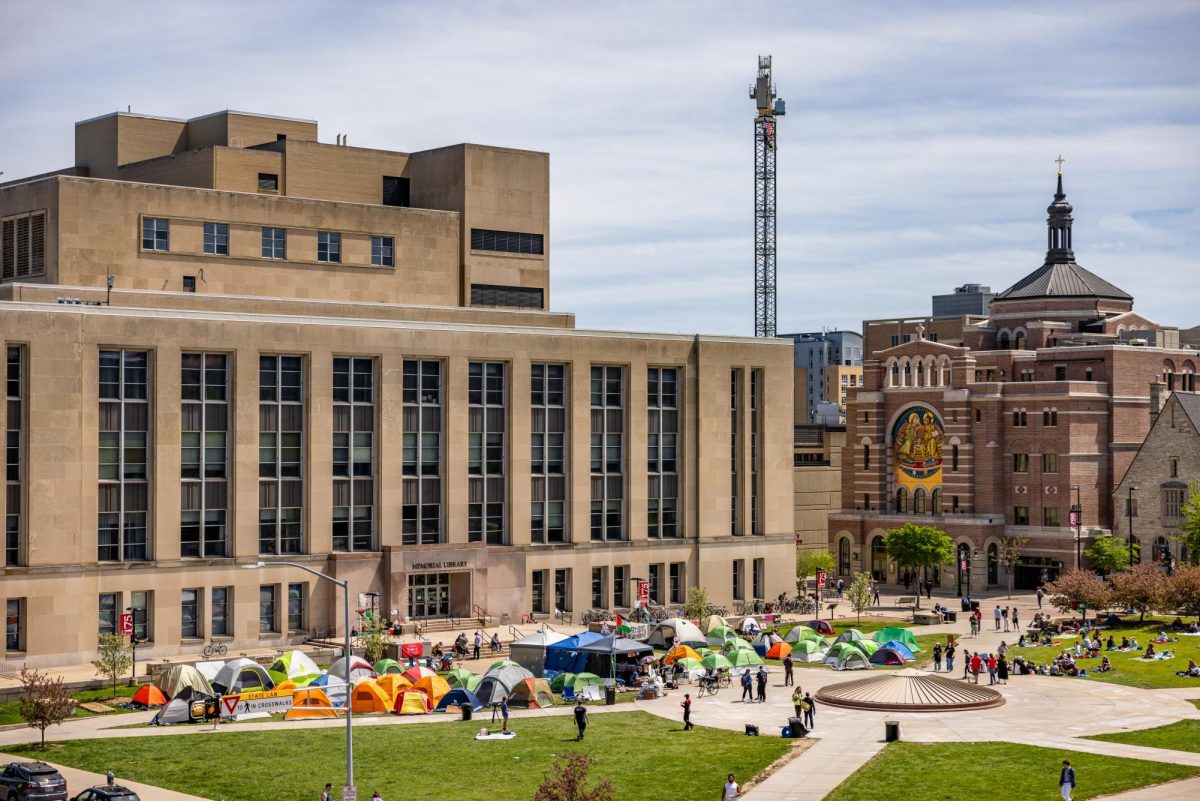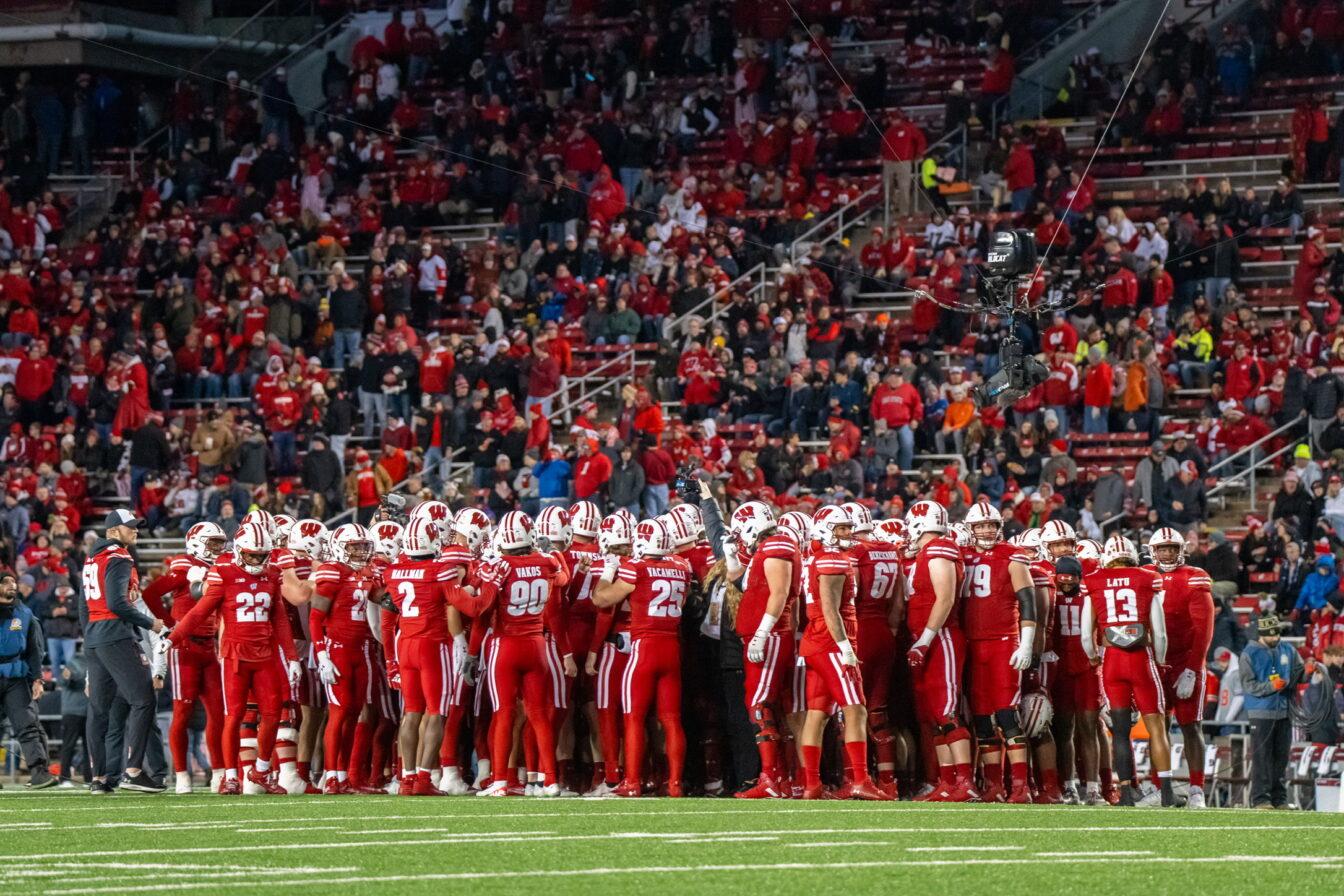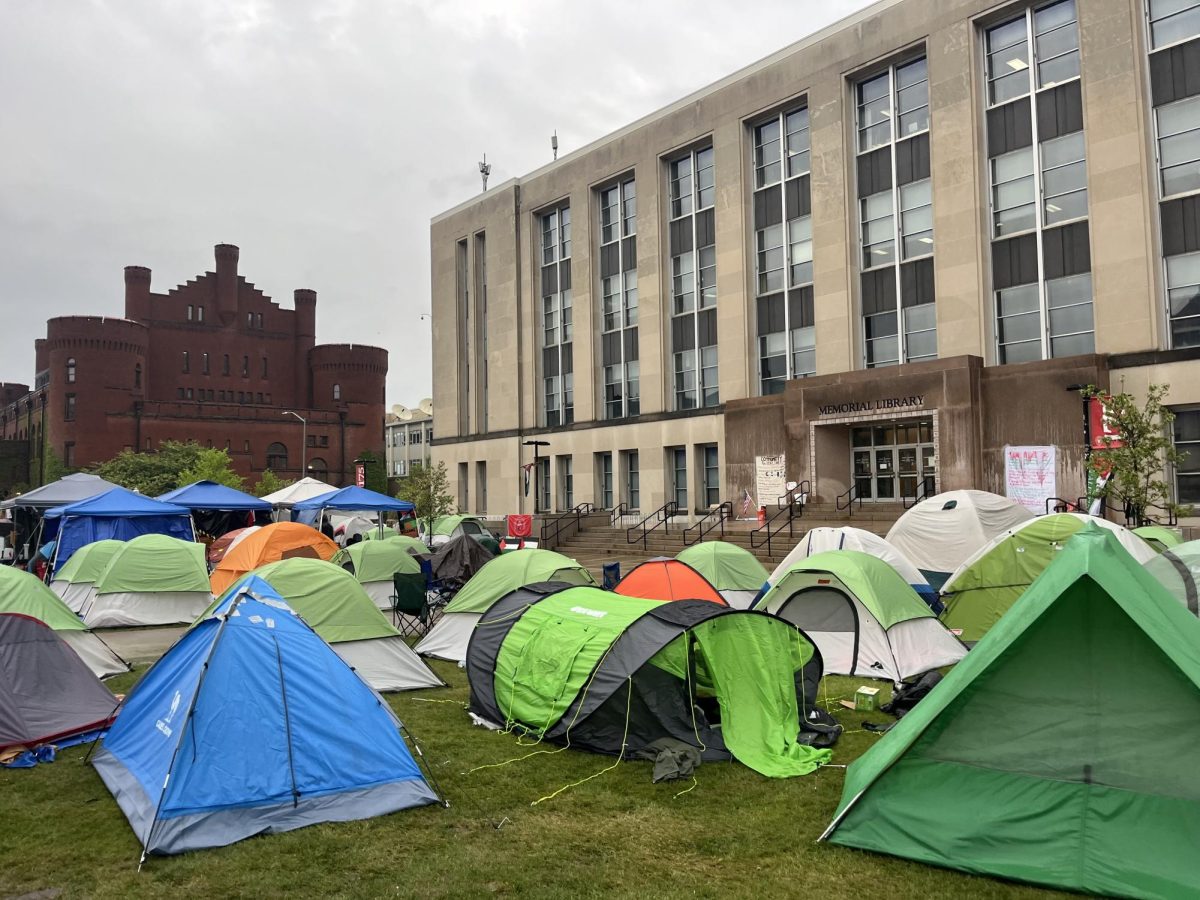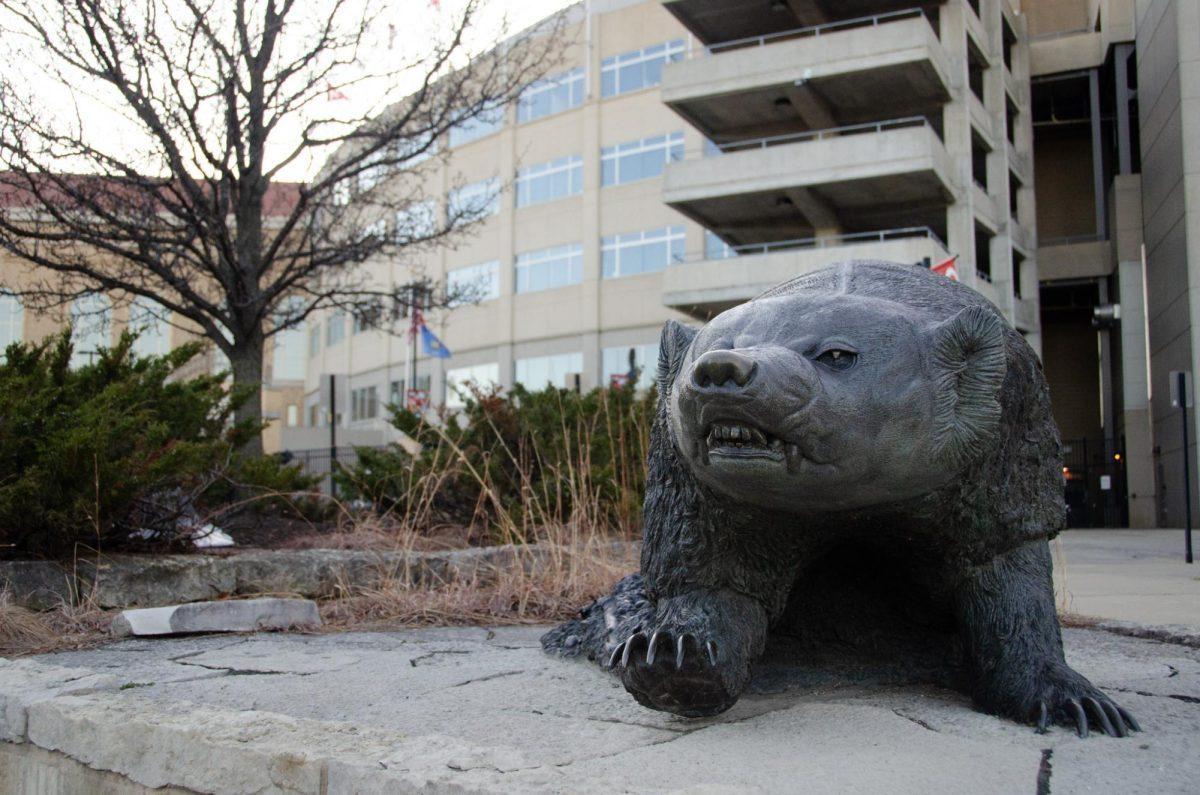[media-credit name=’BRYAN FAUST/Herald Photo’ align=’alignright’ width=’336′] [/media-credit]"I won't spend a minute alone. I have to relearn when I can feel safe. I don't want to live like this for the rest of my life."
[/media-credit]"I won't spend a minute alone. I have to relearn when I can feel safe. I don't want to live like this for the rest of my life."
That is the harrowing reflection of a University of Wisconsin junior who thought she would never be the victim of a violent assault — especially here in Madison. Though disinclined to share her name in consideration for her own safety, she is more than willing to share her story out of concern for fellow students who, she fears, too often neglect the warnings.
In the early morning hours of Wednesday, Aug. 23, she was on her way to a friend's apartment from her Langdon Street residence when she noticed a man crossing to her side of the street — fixated, anxious, trying to seem low key. She continued on to her friend's apartment for a short visit and began to walk back, almost immediately hearing footsteps behind her. She turned with a quick glance and crossed the street into the security of a nearby streetlight.
Approaching her apartment building, she noticed the outside doors were propped open by cinder blocks, but proceeded inside en route to her apartment. As she climbed the stairs to her floor, she heard the stairwell door slam shut and saw the man she recognized from outside running up the stairs. He passed by, whispering, "Hi," and went on ahead to check for anyone who might be around.
"He turned around abruptly and began to hit me. Somehow we ended up on the landing, and he continued to pull my hair and hit me on the left side of my face," she recounted, adding she and the police have since concluded her attacker's intention was to either knock her out or hurt her badly enough to prevent an alarming scream.
"I was on my back, kicking him and screaming 'help' really loud," she said. "He was against the corner [and] seemed to go for his zipper, and I started to kick harder."
With what she can only explain as a rush of adrenaline, she grabbed at his shirt to pull him down the stairs, managing not only to tear off a piece of his garment, but also to scare him off.
"As soon as he ran away I grabbed my keys and ran upstairs. I kept repeating, 'Oh my God,'" she said. "I locked my apartment door and plugged in an old cell phone to call 911."
A growing trend
She is by no means the first — and many fear not the last — to be a victim of a violent assault in Madison. Both the Madison and UW Police Departments have recognized a heightened number of assaults and robberies in the city starting late last spring and continuing through the summer, particularly in the central, north and east districts.
In statistics compiled by MPD Lt. Joe Balles, a comparison was drawn between a six-month period in early 2005 and the same period this year; reported robberies increased in the central, north and east districts by 103, 180 and 230 percent, respectively.
A case investigative analysis also showed that of the 25 strong-arm highway (street) robberies in the central district reported between January and Aug. 1 of this year, 13 took place in sector 403, which includes most of the southeastern portion of the UW campus and the State Street area.
Additionally, this area is reported to be the most susceptible to the recent string of "pattern" robberies, characterized by a short conversation between victim and assailant before a violent assault, that have plagued the city since late last semester.
Nearly three-quarters of the suspects in the pattern robberies were reported to be black males less than 20 years old. Most victims, though, either failed to report the incidents until the next day or could not provide specific descriptions of the suspects — usually because the victims were intoxicated — causing police difficulty in making arrests.
Yet MPD Public Information Officer Mike Hanson warns the downtown area is not the only place to be wary of possible attacks.
"Crime can happen anytime, anywhere," he cautioned. "One of the things [students] should be mindful of is personal security measures, and that's whether you are downtown or in the outskirts of Montana."
All of Madison has been at higher risk for robberies recently, Balles said, noting that $3 per gallon gas prices and other economic factors may be contributing to the problem.
"For the first time, we're on track for 400 robberies in Madison [in one year]," he said, adding that robbery totals will likely increase in September and October, with students arriving back on campus, football games starting up and Halloween approaching.
Summing up concerns of the MPD and the UWPD alike is UWPD Lt. Eric Holen's warning: "People just cannot let their guard down."
What police are doing
The UW junior attacked less than two weeks ago is anything but unguarded now, and she said she refuses to rest until she has some answers.
Still shaken but now dedicated, she set out during the days after her assault with flyers that included a sketch of her assailant and police contact information. Finding the man who attacked her and warning others to take precautions top her priority list.
With help from the MPD, which she said has been "extremely supportive" in ensuring her safety and pursuing an investigation, she is hopeful for a resolution.
According to Hanson, the MPD has been and will be taking supplemental steps to maintain a safe environment for all of Madison in light of the assault spike, especially with the influx of thousands to the downtown area as students begin to repopulate the city.
"We're adding additional resources, especially to the downtown area and other problem spots on the weekends," Hanson said, "and we're taking some additional steps to try to catch these individuals."
In a report distributed at a press conference earlier this month, the MPD announced an action plan for targeting the rise in robberies and assaults throughout the city.
The report first identified some contributing factors to the rise of violent robberies, including density of liquor license establishments around State Street, lack of police resources due to call volume, vulnerability of college-aged population and environmental issues.
Strategies were then outlined for addressing those issues. Increasing law enforcement personnel, more strictly enforcing curfews, continuing investigation of reported crimes and educating the community were among the steps the MPD has already taken or is slated to take in response to the city's recent violence.
"At the beginning of the summer, the city did a really comprehensive analysis of the city streets to see if they were well enough lit," City Council President Austin King said, noting that burnt out streetlights have been replaced and much of the foliage previously blocking out proper lighting has been cut back. Plans are in place to add lighting in other poorly lit areas as well.
King also noted the question of whether high bar density has a significant role in the recent spike in city violence, but said he does not agree with a recent MPD proposal to prevent new bars from opening.
Instead, King said he backs new establishments with "responsible business plans" that will "add to the city nightlife and not the crime problem."
Beyond police efforts
With a high volume of the reported assaults occurring very near the UW campus, school officials have been quick to respond with steps to protect their students.
"I'm really scared," Interim Dean of Students Lori Berquam said. "I don't want any more students to get hurt. We need to take back the campus."
University faculty plan to work tirelessly this semester to promote safety awareness-issues around campus as students begin to flood classrooms again; mass e-mails, visits to residence halls, special events and communication with fraternity and sorority chapters are all planned for the ensuing weeks.
Additionally, instructors will be asked to address their classrooms with a brief safety-awareness message during their first meetings, and university-driven organizations, such as Policy Alternatives Community Education, will be holding forums to spread ideas about reducing victimization.
According to Berquam, the most important points to remember are those so commonly endorsed and too often neglected: do not walk alone, secure your surroundings, take advantage of SAFEwalk and SAFEride, and avoid dark or isolated areas.
"We're all guilty of thinking, 'that won't happen to me,'" Berquam said. "The bottom line is, nobody is above getting attacked."
That applies to new students and campus veterans alike, Berquam noted, adding that for incoming students this is likely their first time away from home and that they need to be informed of campus safety issues.
Returning students are not to be ignored, though, as Berquam warned that those who feel they know the city like "the back of their hand" may need to be reminded of the dangers of letting their guard down.
UW officials are not alone in advising students to be mindful of their personal security. Landlords throughout the city say they are willing to take appropriate measures to secure their properties, but also add that, at some point, residents have to take responsibility as well.
"Providing and maintaining a secure environment is a shared responsibility between ourselves and our residents," Bruce Martin, director of operations for JSM Properties, said in an e-mail to The Badger Herald. "While we can provide the tools, i.e. proper lighting at night, locked entrance doors, etc., the residents also need to act accordingly."
Mike Wayland, a spokesperson for CHT Apartments — the company that owns the residence where the Aug. 23 assault occurred — shared similar sentiments.
Asked about the cinder blocks propping the doors open on the night of the attack, Wayland said, "We always close them when we see them," but noted open doors can be an issue during moving time.
"People are just so lazy sometimes and leave them open even when they're done [moving]," he said.
The victim of the Langdon Street assault said it was unsettling to find that, when returning from the hospital the morning after her attack, the doors were still propped open. And although Wayland assured The Badger Herald that warning letters were drawn up and slipped under every apartment door the day following the attack, the victim said her roommates had to beg for signs to be posted telling residents to keep the doors closed.
"It makes me disgusted," she said. "I just want to know what I'm paying so much for because I'm obviously not paying for security."
"Nobody deserves this"
Since her attack, the assault victim cannot help but recount the incident and wonder how things could have gone differently.
"The police said I did everything right … especially walking into the light," she said. "I was in a sweatshirt and jeans, I didn't stand out, and I wasn't drinking that night. But I was walking alone, and I completely regret it."
Although thankful to the UW Dean of Students office for their help with finding counseling and an alternative living situation, she still has trouble even going back to her Langdon Street apartment to gather her things.
"It's hard for me to go up the stairs," she said. "I hate that spot; my body just locks up. I never used to be so jittery; I was totally comfortable sleeping anywhere. … This has just totally changed everything I am."
But she is not without a mission; in hopes that others around campus can better protect themselves from this kind of victimization, she warns that right now is the time to be careful.
"This guy had it right," she said. "We had just moved in, and I didn't know the area very well … It is the perfect time to do this. We're not in school yet, so we're all out partying all the time."
So as students continue with the fall routine — new apartments, football games, house parties — the hope of this assault victim, UW officials, police and concerned Madisonians is the same: listen and learn.
"I just hope more people will wake up," the attack victim said. "It took this for me [to wake up], and it doesn't hit you until it's you or someone you know. You don't want to have to be that person."


















